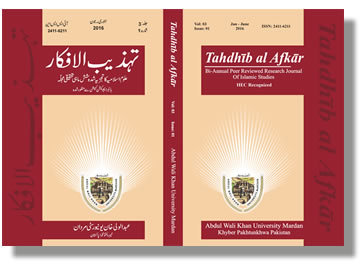سامی مذاہب کے دینی ادب میں رشوت کی ممانعت کا تقابلی جائزہ
A Comparative Study of the Prohibition of Bribery in the Religious Literature of the Semitic Religions
Abstract
Bribery is the practice of offering professional money or other favors in order to circumvent ethics in a variety of professions. It is a form of corruption and is generally illegal, or at least cause for penalties from professional organizations. This study focuses on the meaning and types of Bribery in Semitic religions, followed by the detailed discussion by elaborating the legal status of its various types from sacred text and interpretations. The literature review confirmed the research gap about the lack of scholarly work about the comparison of the ruling about bribery in Semitic religions. The descriptive method is used in the first part of the study along with an analytical and comparative approach in the discussion. Transactional and Variance bribery were discussed in detail. After analysis of the related texts about bribery in Semitic religions, the study concluded that Islamic teaching prohibited all types of bribery, however in Judaism and Christianity the transactional bribery is permissible, although it is not encouraged. Likewise, offering bribery to save guard personal rights or from any injustice is permissible in Islam. All Semitic religions discourage the practice of bribery and it is punishable accordingly.





